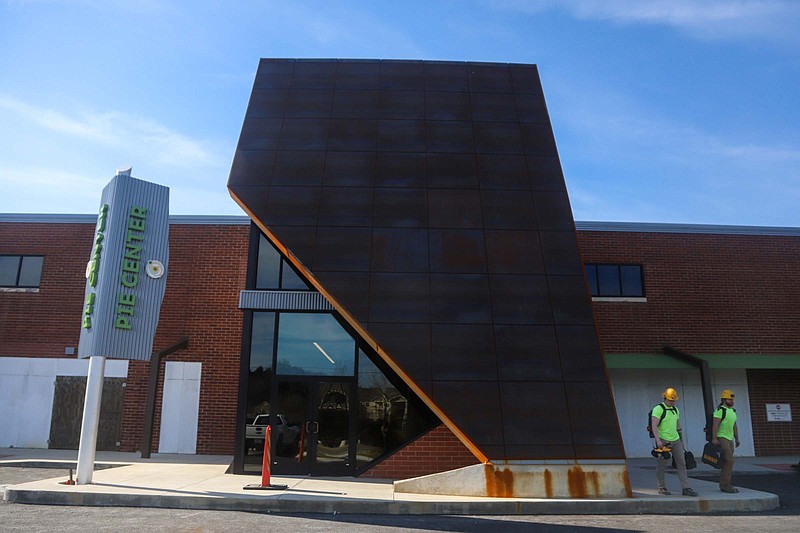CLEVELAND, Tenn. - In an abandoned factory that was originally built 75 years ago to supply uniforms for the military after World War II, a coalition of business, federal, state and local governments are revamping the 256,100-square-foot complex into a pioneering vocational training school that organizers hope may serve as a model for supplying workers for many high-demand jobs in the future.
By this fall, more than 500 high school juniors and seniors from four area high schools will be studying everything from diesel machinery and welding to culinary arts and audiovisual skills in the regional training facility taking shape near downtown Cleveland. Known as the Bradley County Partnership in Industry and Education (PIE) Innovation Center, the $33 million complex has gained the support of nearly a dozen local businesses and foundations along with the local school system and a variety of government agencies.
Bradley County Schools Superintendent Linda Cash said the former American Uniform Co. mill, which operated for nearly 60 years before it shut down in 2006, offered a structure that could be more cost-effectively developed for vocational training than building a new school. The facility is centrally located to serve students from Bradley, Meigs and Polk counties and will have space to house business apprenticeship programs, the local UT Extension Service and even a local bank branch to help students learn about saving and investment and a counseling center to help students with mental challenges and other wrap-around services.
The two-story will house as many as 38 tenants, including both the vocational school and a separate alternative school for problem students.
The facility is getting financial or training support from such local businesses as McKee Foods, Wright Brothers Construction, the Center for Sports Medicine and Cleveland State Community College, among others, and is designed to be a self-supporting education model.
"This facility can really change education and our workforce development pipeline," Cash said, noting that the new facility should train nearly three times more vocational students than what the local high schools now educate. "With aging Baby Boomers retiring, we need to build the talent pipeline for the future and give our students who may not want to go to a 4-year college a chance to develop their skills for livable wage jobs. There are a lot of great jobs out there in our community and we need to let our students know about them and get them ready."
The new facility will encourage more work-based learning opportunities and should facilitate better links between schools and businesses that may hire many of the graduates from the PIE center, Cash said. A variety of work certifications will be offered at the new school for students who will then be qualified to go to work or advance their skills in local community colleges.
"We recognize we need to help build our pipeline of future workers," said Steve Wright, president of Wright Brothers Construction in Charleston, Tennessee.
U.S. Rep. Chuck Fleischmann, R-Chattanooga who helped secure an initial $4.5 million federal grant in 2014 to start planning for the center, and U.S. Sen. Bill Hagerty, R-Tenn., who as commissioner of Economic and Community Development under Gov. Bill Haslam pushed for more vocational training, both praised the new PIE center during a tour on Friday.
"This type of facility is so appropriate and so needed, and I'll be meeting next week with Labor Secretary (Marty) Walsh and tell him about this as an example of what is needed so much in our country," Fleischmann said.
Hagerty said such vocational training facilities are key to recruiting more industry and jobs to the Volunteer State.
"From my days as economic development commissioner, I recognize that this is vitally needed, especially in helping to make our rural areas highly competitive," he said. "And I've always felt that a good job solves so many social issues we face."
Contact Dave Flessner at dflessner@timesfreepress.com or at 423-757-6340.

